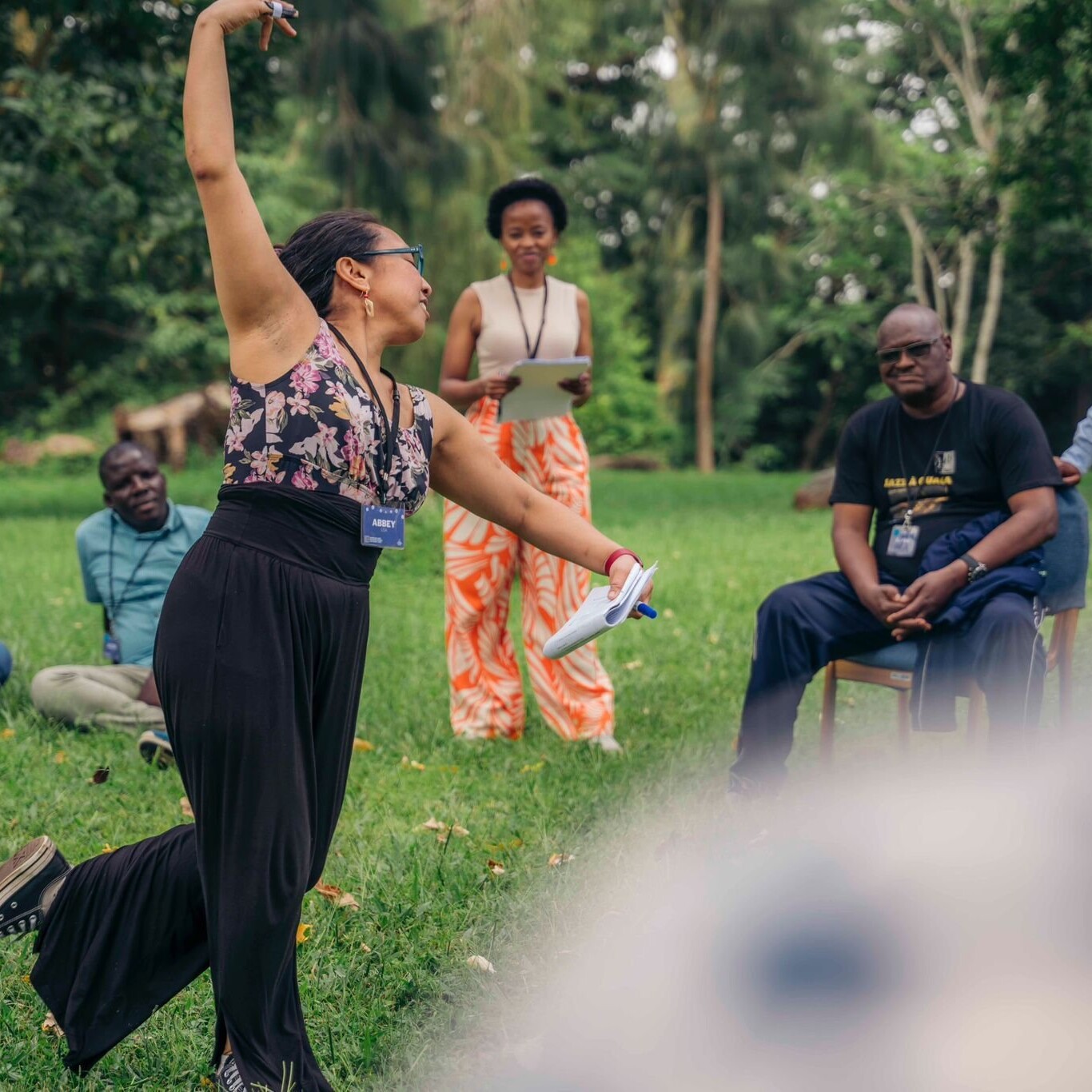Collective Mind hosts regular Community Conversations with our global learning community. These sessions create space for network professionals to connect, share experiences, and cultivate solutions to common problems experienced by networks.
Our June 16th Community Conversation welcomed Sé Franklin, a coordinator from MenEngage Europe, to share his network’s experiences around developing a core set of values and code of conduct while evolving their network culture in response to the global pandemic. MenEngage Europe is a regional network of MenEngage, a global alliance working toward advancing gender justice, human rights, and social justice and provides a collective voice to engage men and boys in gender equality and gender justice.

Highlights from the conversation
A network’s culture is the shared values, norms, attitudes, and practices of the individuals’ and groups’ behaviors that influence their interactions. The culture should maintain the network’s shared purpose and harness the nature of network practice — one of transparency, inclusivity, and collaboration — by cultivating shared norms and practices in ways that establish constructive dynamics across the network. Yet, much like our Community Conversation on equity articulated, establishing and holding each other accountable to shared norms comes with challenges. Defining, discussing, and modeling network culture can be uncomfortable, complex, and sometimes by necessity, dynamic. However, as highlighted by our co-host, it can also be rewarding and can create brave spaces that ultimately strengthen the network.
Sé discussed MenEngage’s “house rules” — a set of beliefs, values, and code of conduct that its members subscribe to and that can be used to hold each other to account, both in their work and, by extension, how they individually engage in the world. He also shared informal aspects of the network’s operating philosophies and how they have evolved over time. What emerged from the conversation was a number of important and necessary factors that go into holding up a networks’ culture.
When cultivating a network culture, one of the most important aspects is to support and encourage people to be real, present, and accountable and demonstrate this in practice. Many networks and network members are engaged in work that goes against the mainstream while also being geographically dispersed, contributing to a feeling of isolation. Network coordinators and managers can step in and build a ‘personal’ culture that provides care and support for members by creating spaces that feel safe, that acknowledge people’s struggles, and encourage people to be courageous. Alongside that is setting the expectation that participants in these spaces must also be prepared to challenge and be challenged, but to do so with care, sensitivity, and awareness.
Another theme that emerged was the necessity and benefit of network culture evolving and adapting to variable circumstances and becoming a place of care for members in the face of change. The move from in-person interactions to online engagement resulting from the pandemic can be viewed as a positive outcome for many networks, for example. In many cases, it enhanced access to and amongst members and created more supportive connections while also enabling people to engage from the comfort of their homes. A positive byproduct of this operating environment is having created a space in which participants can feel braver, more comfortable, and more reflective than they might have in person.
Just as with centering equity in networks, cultivating a network culture requires trust and the ability of network leaders to invest in efforts that will ultimately foster trust in its network relationships. During the pandemic, MenEngage initiated monthly check-ins centered on checking in on people’s well-being and listening to each other, while also using the time to reconnect with members, rethink the priorities of their canceled annual symposium, and discuss ways to model the culture they were trying to cultivate.
Network culture can be complex and manifest in different ways, as emphasized by our co-host. In some cases, a code of conduct can be documented and laid out as a formal set of rules. In other cases, aspects of the network culture take on a more informal shape, providing the flexibility to evolve under variable circumstances. In still another instance, accountability to a set of norms and attitudes can be linked to the network’s mission, for example, a formal commitment for MenEngage to be accountable to women-led feminist organizations. In other words, network culture is as complex as networks themselves, but a strong and intentional network culture that actively supports its members and maintains quality connections is necessary to harness the transformative power of networks.
Miss the session? View the recording here.
Thanks again to our co-host, Sé Franklin from MenEngage Europe!
Get involved
Have your own experiences with efforts to create a supportive network culture? Tell us about it in the comments below.
Join us for the next Community Conversation!
Or email Seema at [email protected] to co-host an upcoming session with us.
Originally published HERE
Featured image found HERE
Seema Patel has been working with mission-driven organizations and multi-stakeholder initiatives for more than 15 years – as a project manager, a volunteer, and an advisor. She has worked in the areas of domestic and global alternative energy, poverty alleviation, social and sustainable entrepreneurship, non-profit web strategy design, and U.S. government management consulting. In her work with Collective Mind, Seema specializes in network analysis, organizational design, knowledge management and learning, and operations.
PLEASE DONATE to help Network Weaver continue in it’s mission to offer free support and resources to networks worldwide.




